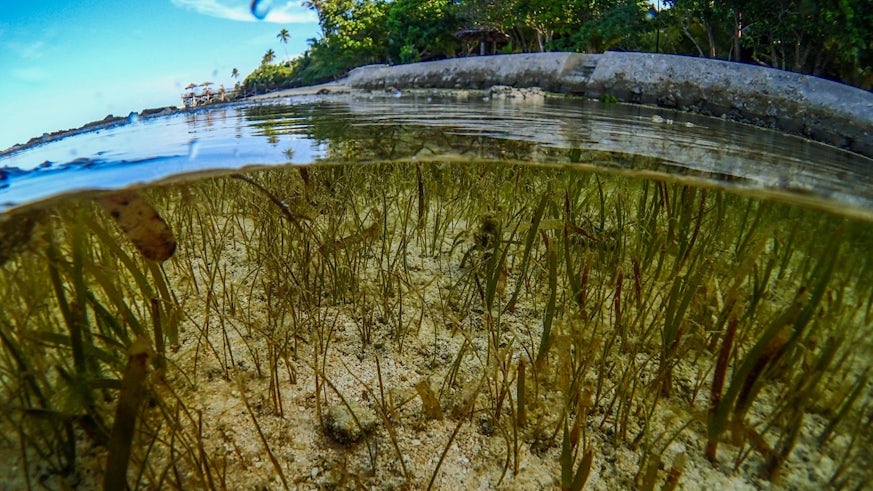Change in emphasis in tropical marine conservation is needed to conserve vital seagrass habitat
13 November 2018

We must increase and reprioritise our conservation efforts and use our limited resources in a more targeted manner in order to attain sustainable systems, argues a piece published in the journal Current Biology.
The piece, co-authored by Dr Leanne Cullen-Unsworth from Cardiff University’s Sustainable Places Research Institute, emphasises that although it is critical to protect the coral reefs we have left, there is an urgent need to broaden the focus of tropical marine conservation to prevent the destruction of seagrass meadows.
Seagrasses are marine flowering plants that are found along temperate and tropical coastlines around the world. They have been called the “canaries of the sea” as, due to their sensitivity to a changing environment, their condition can be used as an indicator of the condition of coastal areas.
Seagrass provides habitat for fish, shellfish, and marine herbivores. It filters sediments and reduces wave and current energies near coasts. Seagrass also plays a vital role in sustaining fisheries productivity and food security in the tropics.
However, seagrass meadows are under threat from poor coastal water quality and expanding coastal populations and seagrass is being lost at a rate of 7% per year. The authors argue seagrass is being overlooked in terms of research, funding and conservation efforts in favour of coral reefs.
Dr Cullen-Unsworth said: “There’s no question that we must invest in preserving the coral reefs we have left.
“However, it’s vital that we take a more holistic approach to marine conservation and recognise the vital role that seagrass plays in maintaining sustainable systems. Conservation of seagrass is paramount for the continued livelihoods and food security of many hundreds of millions of people.
“We must act now to conserve seagrass meadows and reprioritise our efforts to recognise the vital role of seagrass in ecosystem services.”
The full piece can be viewed online.